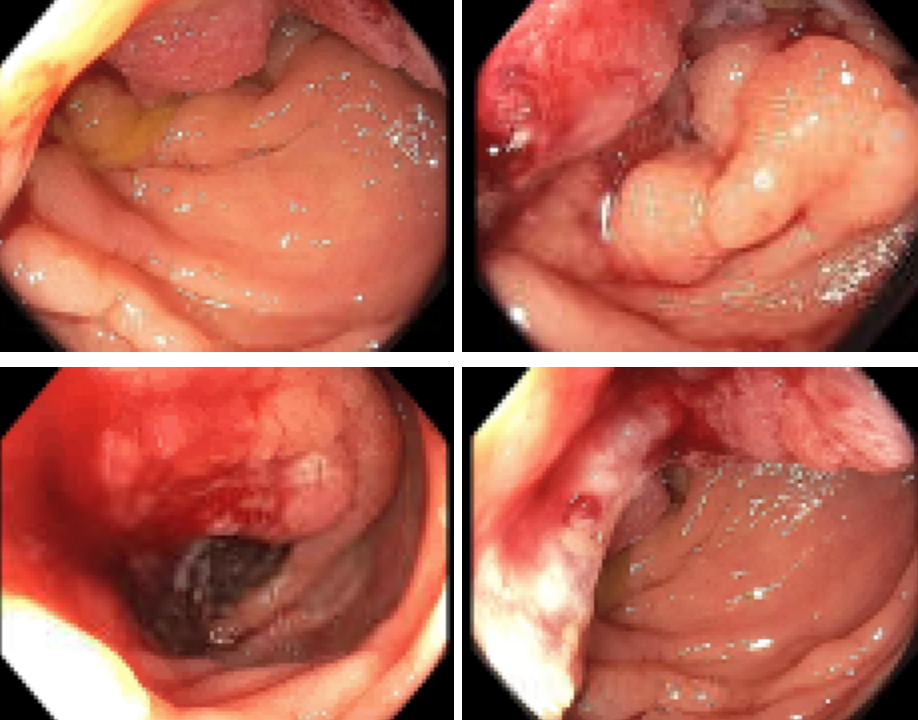Monday Poster Session
Category: Colorectal Cancer Prevention
P2674 - The Impact of Screening Tools on the Prevalence of Interval Colorectal Cancers in Patients of Advanced Age
Monday, October 27, 2025
10:30 AM - 4:00 PM PDT
Location: Exhibit Hall

Maryanna Schweininger, DO (she/her/hers)
Cooper University Hospital
Camden, NJ
Presenting Author(s)
Maryanna Schweininger, DO1, Daniela Gonzalez, BS2, Karl Akiki, MD1, Jessica Richmond, MD1
1Cooper University Hospital, Camden, NJ; 2Cooper Medical School of Rowan University, Camden, NJ
Introduction: The American Cancer Society’s (ACS) guidelines for colorectal cancer (CRC) screening include performing colonoscopies on average-risk adults once every 10 years. Above the age of 75, guidelines are not clear on whether colonoscopies should be continued, mainly due to risk associated with the procedure, despite evidence that the risk of CRC increases rapidly with age. According to the ACS, the incidence rates of CRC increase by about 20% to 30% from ages 55-59 years upward. The purpose of this paper is to demonstrate the need for better guidelines in the older population, as people are living longer.
Case Description/
Methods: An 85-year-old female with a past medical history significant for Non-Hodgkin’s Lymphoma, type II Diabetes Mellitus, and normal colonoscopy 4 years ago presented with unintentional weight loss, microcytic anemia, worsening fatigue, poor appetite, and dyspnea on exertion. Lab results were positive for fecal occult blood. Colonoscopy, esophagogastroduodenoscopy, and CT of abdomen and pelvis revealed a likely malignant, completely obstructing tumor at 50cm proximal to the anus, with metastasis to the liver, lungs, and esophagus. The patient was diagnosed with stage IV right colon adenocarcinoma despite having unremarkable colonoscopy four years prior.
Discussion: Colon cancers detected within 60 months of a negative colonoscopy, also known as interval CRCs, can arise due to failed biopsy detection or the rapid development of de novo CRCs. While factors like family history and lifestyle contribute to the risk of developing interval CRCs, advanced age remains one of the strongest predictors, with patients above the age of 65 having a four-fold increased risk. To reduce the incidence of interval CRCs, tailoring screening intervals based on individual risk profiles is essential. This may include more frequent colonoscopies for older adults or the integration of non-invasive screening modalities such as stool-based tests or CT colonography, either in addition to or as alternatives to colonoscopy. Given the elevated procedural risks in older populations, these less invasive options may be more appropriate as standard practice. This paper aims to highlight the heightened risk of interval CRCs in individuals over 65 and to advocate for updated screening guidelines that incorporate the availability of effective alternative screening methods.

Figure: Figure 1. Endoscopic images of mass.
Disclosures:
Maryanna Schweininger indicated no relevant financial relationships.
Daniela Gonzalez indicated no relevant financial relationships.
Karl Akiki indicated no relevant financial relationships.
Jessica Richmond indicated no relevant financial relationships.
Maryanna Schweininger, DO1, Daniela Gonzalez, BS2, Karl Akiki, MD1, Jessica Richmond, MD1. P2674 - The Impact of Screening Tools on the Prevalence of Interval Colorectal Cancers in Patients of Advanced Age, ACG 2025 Annual Scientific Meeting Abstracts. Phoenix, AZ: American College of Gastroenterology.
1Cooper University Hospital, Camden, NJ; 2Cooper Medical School of Rowan University, Camden, NJ
Introduction: The American Cancer Society’s (ACS) guidelines for colorectal cancer (CRC) screening include performing colonoscopies on average-risk adults once every 10 years. Above the age of 75, guidelines are not clear on whether colonoscopies should be continued, mainly due to risk associated with the procedure, despite evidence that the risk of CRC increases rapidly with age. According to the ACS, the incidence rates of CRC increase by about 20% to 30% from ages 55-59 years upward. The purpose of this paper is to demonstrate the need for better guidelines in the older population, as people are living longer.
Case Description/
Methods: An 85-year-old female with a past medical history significant for Non-Hodgkin’s Lymphoma, type II Diabetes Mellitus, and normal colonoscopy 4 years ago presented with unintentional weight loss, microcytic anemia, worsening fatigue, poor appetite, and dyspnea on exertion. Lab results were positive for fecal occult blood. Colonoscopy, esophagogastroduodenoscopy, and CT of abdomen and pelvis revealed a likely malignant, completely obstructing tumor at 50cm proximal to the anus, with metastasis to the liver, lungs, and esophagus. The patient was diagnosed with stage IV right colon adenocarcinoma despite having unremarkable colonoscopy four years prior.
Discussion: Colon cancers detected within 60 months of a negative colonoscopy, also known as interval CRCs, can arise due to failed biopsy detection or the rapid development of de novo CRCs. While factors like family history and lifestyle contribute to the risk of developing interval CRCs, advanced age remains one of the strongest predictors, with patients above the age of 65 having a four-fold increased risk. To reduce the incidence of interval CRCs, tailoring screening intervals based on individual risk profiles is essential. This may include more frequent colonoscopies for older adults or the integration of non-invasive screening modalities such as stool-based tests or CT colonography, either in addition to or as alternatives to colonoscopy. Given the elevated procedural risks in older populations, these less invasive options may be more appropriate as standard practice. This paper aims to highlight the heightened risk of interval CRCs in individuals over 65 and to advocate for updated screening guidelines that incorporate the availability of effective alternative screening methods.

Figure: Figure 1. Endoscopic images of mass.
Disclosures:
Maryanna Schweininger indicated no relevant financial relationships.
Daniela Gonzalez indicated no relevant financial relationships.
Karl Akiki indicated no relevant financial relationships.
Jessica Richmond indicated no relevant financial relationships.
Maryanna Schweininger, DO1, Daniela Gonzalez, BS2, Karl Akiki, MD1, Jessica Richmond, MD1. P2674 - The Impact of Screening Tools on the Prevalence of Interval Colorectal Cancers in Patients of Advanced Age, ACG 2025 Annual Scientific Meeting Abstracts. Phoenix, AZ: American College of Gastroenterology.
